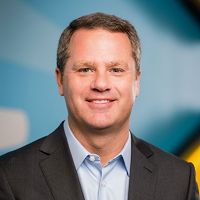

Quotes By Doug McMillon

Businessman
Doug McMillon
Oct 17, 1966 - present
It's very clear that AI is going to change literally every job. Maybe there's a job in the world that AI won't change, but I haven't thought of it.
Until we're serving humanoid robots and they have the ability to spend money, we're serving people. We're going to put people in front of people.
I think humanoid robots are scary and I don't know why you have to put a head on them. I don't know why they have to have five fingers, surely there's a way to do something that's a little less intimidating.
Our goal is to create the opportunity for everybody to make it to the other side.
We're an omni retailer, so we've got things going on ecommerce-wise, stores-wise, marketing-wise.
We're happy to serve people however they wanna be served. Customers these days shop in kind of an all-of-the-above way. They use stores, they use pick up, they use delivery.
We continue to invest in wages. So I think that's helping some, and that process will continue. As it relates to AI and the future of employment, I think for the most part, our folks are enthusiastic about it because they've seen new tools that they're receiving that are making their jobs better. That's helping them take fewer steps.
Our sales are growing so much. I think people are optimistic about the future of what their life can look like.
I think no one knows how this is going to play out exactly. And the way it feels to me is that basically every job gets changed. And I think the best way to think about it is getting "plussed up." So how can I lean in the role that I have, regardless what that role is, to adopt new tools, leverage them and make things better than they would've otherwise been?
As I look across our company, we have everything from store associates to supply chain associates. Of the 2.1 million people (globally), something less than 75,000 of them are home office jobs. All the other ones are working in a store, a club, a distribution center. And I think those jobs change more gradually. We are still going to want to serve customers and members with people. The change as it relates to the home office jobs probably happens faster.
One of the biggest areas of change in the last decade is related to associates that work in our stores, picking orders for delivery and pickup for our customers. And we have something north of 200,000 people doing that job, and yet we have about the same (total) number of people working in Walmart U.S.
Other tasks and other jobs changed, which enabled us to create new jobs that paid more and have fewer of the older jobs that went away. I hope what happens as we lead through this is that there will be pluses and minuses, but the net ends up being even more people because we have more ideas of how to grow.
Being a store manager is such a great job and such a challenging job. And it's a job that pays well, and it pays well for a reason. You're interacting with the community with large numbers of people.
I think the skills that we have as human beings are valuable. They always have been, and that'll be even more true in the future.
I think most Americans probably don't know what a tech makes that helps take care of our stores and clubs and that we can help them learn how to be a tech. The same thing's true for our drivers. So we have a need to get the word out so that people know there are some great jobs.
I think as we all work to learn and navigate the future towards a world where AI fulfills its promise, the best way to do that is to work together and to share information and learn together. It'll speed up our ability to get ahead of this so that we can do a better job of setting our associates up for success.
The change that's happening in the world is going to happen. Our choice is to lean in, learn (and) help lead so there are better outcomes for everybody involved.
Ten years ago, we committed to investing in our associates through higher wages, new training opportunities, and changes to our scheduling and education programs. It was a step grounded in the belief that putting people first is always the right thing to do. These investments sparked momentum in our stores that we still see and feel today.
Today, we still have more than 300,000 U.S. associates who were with us since 2015 and are now leading teams, running stores and clubs, and continuing to grow their careers. Their stories are a reminder that when people are given opportunity, they make the most of it - and a culture of opportunity creates a cycle where happy associates lead to happy customers and members, and vice versa.
Workers in every type of role must be prepared to adapt to the rise of artificial intelligence in the workplace.
Popular Authors









